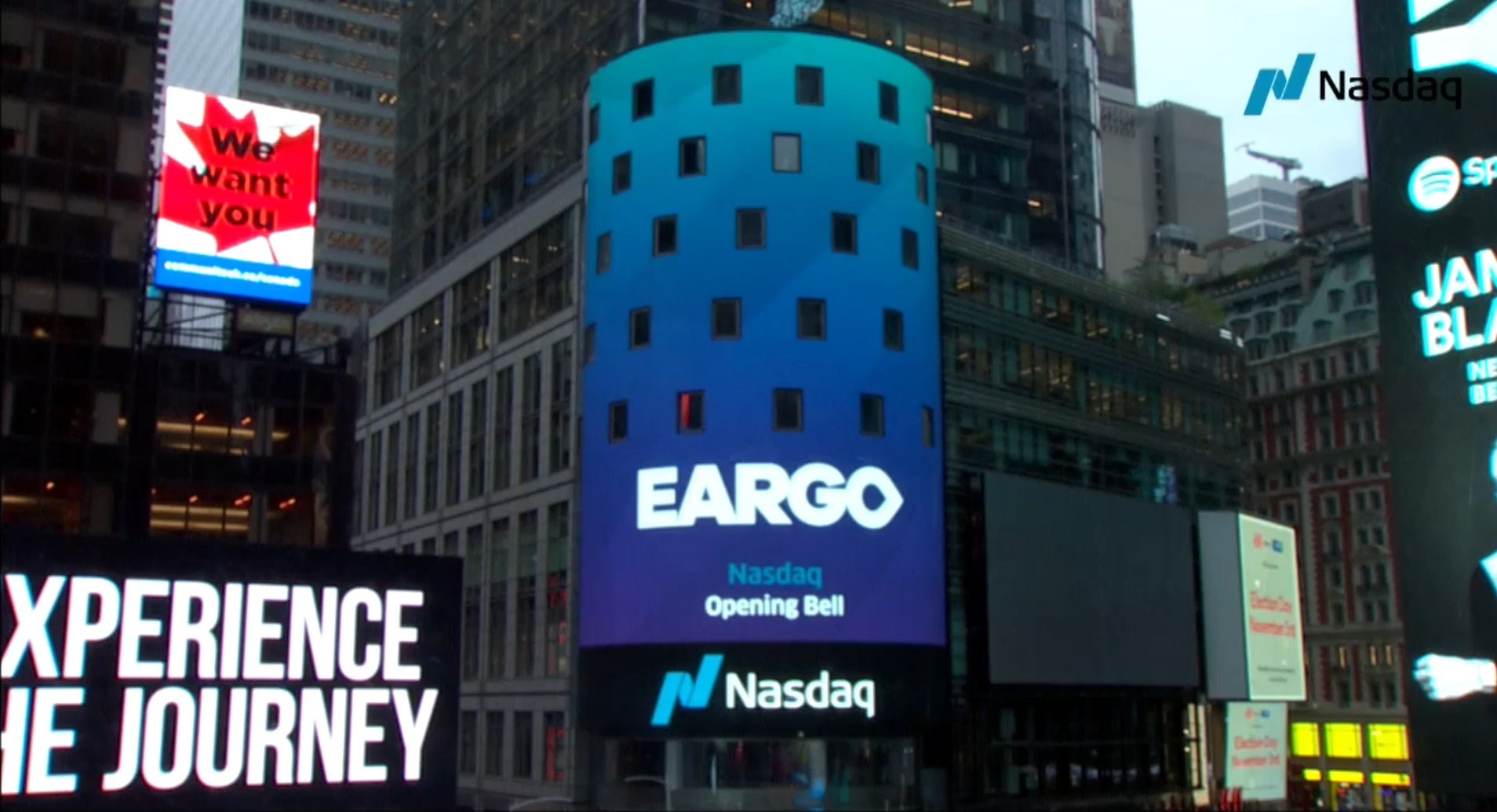
Eargo went public on Nasdaq on Friday. The hearing aid-maker’s stock now trades under the ticker “EAR.” Photo credit: Screenshot from Nasdaq
A Bay Area startup building tiny, “invisible” hearing aids went public on Friday. Eargo began trading on Nasdaq under the ticker “EAR,” at $18 per share.
In total, the startup expects to sell 7.85 million shares of its stock, bringing in proceeds of more than $141.3 million. The upsized IPO fetched more than Eargo had initially planned, with an expected range of $15 to $16 per share, according to its most recent prospectus.

The Power of One: Redefining Healthcare with an AI-Driven Unified Platform
In a landscape where complexity has long been the norm, the power of one lies not just in unification, but in intelligence and automation.
San Jose, Calif.-based Eargo makes small, rechargeable hearing aids that sit in the user’s ear canal, so others can’t see them. They sell for between $1,850 or $3,000 for a pair, depending on the model.
Users control settings, such as whether they’re in a crowded room or on a phone call, through a companion app. The devices aren’t sold in clinics, but instead shipped directly to consumers’ homes.
Earlier this year, Eargo raised $71 million in a funding round led by Gilde Healthcare and Longitudinal Capital. To date, it has shipped 42,000 hearing systems, including a little over 9,000 in the most recent quarter. But a substantial portion of customers have returned their devices — roughly 28% in the first half of 2020 — according to Eargo’s prospectus.
The company brought in 28.59 million in revenue in the first six months of 2020, up from $14.45 million during the same period last year. But it also reported an $18.3 million let loss during the first half of 2020, compared to $18.98 million in the first half of 2019. In the second quarter of 2020, it reduced its headcount by 45 employees.
The company plans to use roughly $50 million in IPO proceeds for sales and marketing, and another $20 million for research and development. J.P. Morgan and BofA Securities served as lead book-running managers for the deal.








